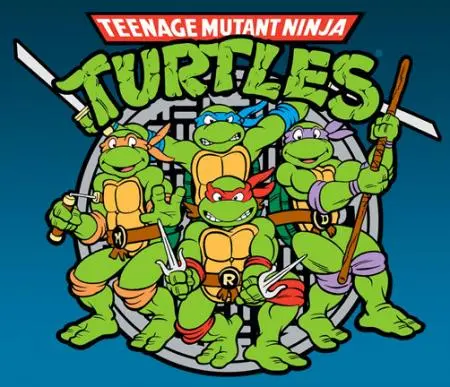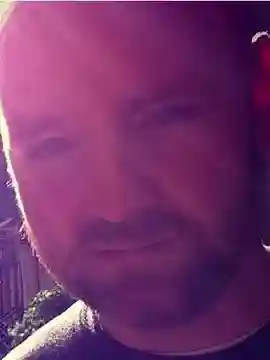Thirty years ago this month, the Teenage Mutant Ninja Turtles made the jump from comic books to television. The animated series debuted December 28, 1987. In the three decades since its debut, the Turtles have managed something that most in pop-culture can only dream of: longevity. And it is that longevity that allows Nick Gregorio to use references to the Turtles in his debut novel, Good Grief, without worrying that the nostalgia and feelings elicited by such a reference will only apply to a certain group.
That being said, I was a child of the Turtles, so Gregorio's novel had a special impact on me. Good Grief deals with the ways in which people allow addiction of all sorts to creep into their lives, and specifically, it's about how one family copes with varying types of addiction and loss.
Aside from being a really great writer, Nick Gregorio is a fucking cool dude who teaches, helps run a fantastic podcast called book.record.beer, and plays guitar in a punk band called Scatterbrain. I was fortunate enough to catch up with him to talk about his debut, about the Turtles, and about how writers need to simply make time if they really want to write.
Your novel uses the Ninja Turtles as a metaphor and as a strong nostalgic reference point for the Gen-X/Millennial readers. Did you know that December marks the 30th anniversary of the release of the original Teenage Mutant Ninja Turtles television series?
I did not know that! Shows how much of a fan I am. Or maybe I was just avoiding that fact because...thirty years? Really hard to believe. What I find to be pretty unreal about the Turtles is how they never really went away. They’ve been going through a pretty massive resurgence over the last seven years or so, but they were sort of stitched into my generation’s pop cultural fabric from the day the show hit the air. They’ve been around my entire life. Pretty amazing.
You and I are both alums of Arcadia University's Creative Writing program. Did you start writing this novel during the program?
Good Grief began as a graphic novel script back in 2011 believe it or not. I had been writing for a while at that point but had nothing to show for it aside from a flash drive full of vulgar, ridiculous short stories and half-finished novels. After receiving one rejection letter too many, I figured it was the publishers who had the problem—it couldn’t be my writing, it just couldn’t. So I figured I’d try my hand at writing comics, because, you know, breaking into comics is so much easier than traditional publishing… Obviously, I was a fool. Several gut-checks and hard lessons later, I was lucky enough to be able to go back to school to hone a set of super rough skills. But overall, the novel as it is today didn’t start to take shape until I began my coursework at Arcadia. So, I guess the short answer would be yes and no—heavily leaning toward yes.
How long did it take to write your first draft?
My first draft was almost like a living document. I would revise and rewrite chapters as I moved through the story. I adopted a sort of “headlights on a dark road” philosophy throughout the writing process as well. I knew where I needed to go, I just wasn’t entirely sure how to get there. Things were very fluid for most of a year and a half I’d say. I’m sure that's just a roundabout way of describing more or less what every writer does to some extent, but as a first true go at a novel it was new to me. But, yeah, a year and a half or so.
I read your short story "He’s Doing Just Fine" quite some time ago. It takes place in your novel's world, but before the novel begins, and it follows Nate's perspective rather than Tony's. How did that story come about?
So, Nate is dead when Good Grief begins. His presence is very much felt throughout, and he shows up in flashbacks, but, for the most part, Nate’s gone. “He’s Doing Just Fine” was an exercise in two things: Establishing a timeline prior to the novel that acted as a “bible” of sorts for my own meticulous continuity standards that no one else but me really needed to know. The second was to better understand who Nate was at his most vulnerable. In the novel we see the cool guy, the older brother, the sports star, the scholar, the addict, but we only get glimpses of Nate without his armor. I wanted to know more about him, really. Also, I’m an enormous comic book fan and love shared universes. Let’s just say this story was also my first attempt to expand the Good Grief universe.
Good Grief deals with coping, but it also, of course, deals with substance abuse. How did you arrive at that as the catalyst?
So, there’s always a little truth to fiction. A close relative and friend of mine passed away due to substance abuse some seven years ago or so. That beat the hell out of me. In an attempt to cope with the loss myself, I started writing about the grief I was feeling and let the story flesh itself out naturally after that. But there are dozens of crushing, beautiful novels about death and loss and addiction, so I tried to make things a bit more dynamic so it wouldn’t feel like a retread. That’s where Mikey came in. That’s when punk rock made its way into the story as a bit of a soundtrack to the whole thing. That’s when it went from being about coping with one death from addiction and molded itself into a story featuring a bunch of people addicted to one thing or another. Whether it's to a person, or a time, or a feeling, or cigarettes, or alcohol, all of the characters in Good Grief are suffering from being unable to let go of something. They have to cope with not only the death of a loved one, but the end of a period in their lives that has been dead and gone for a long time.
Your portrayal of a relatively well-off family and the impact one child's drug abuse has on them felt as authentic as anything I've read. How did you research that?
I’ll be honest, I researched the specifics of support groups and halfway homes and drug addiction with Google searches, but when it came to the guts of the emotional toll it had on the D’Angelos I literally just pretended it was happening to me. I asked myself about what sort of facial expressions my mother would have if I had been the one who passed away. I wondered about whether or not my father would cry in front of people. I imaged how the hell I would act if I had to pick out a casket or an urn for my own brother—if I’d had a brother to begin with. These were things that I was just able to force myself into feeling. After that, it read authentic to me. I was told it felt authentic by wonderful writers I trust with my work. For the most part, the emotional impact was pure imagination, and I’m thrilled it came across so well.

Good Grief is a master-class in minimalism. What is it about that style of writing that draws you to it?
Thank you for that! You sure know how to make a guy’s day, I’ll tell you. As far as minimalism goes, it’s always felt like punk rock to me. Fast, aggressive, nasty, challenging. And anyone who’s listened to punk and played an instrument at one point or another said that they could totally write a great punk song. They of course quickly found out that there are such wonderful nuances to punk, just as there are to minimalism, that there is nothing easy about either—not if you want to do them well anyway. Of course, minimalism doesn’t have an aggression requirement. It can often be lovely and subtle, all the while requiring the reader to work for what some books will simply offer to them directly. There’s a versatility to minimalism that just makes it feel constantly fresh. There’s a rhythm to it, when it’s done well, that charges me up like a good punk tune can. But instead of running around in a circle, I’ll be sitting on my couch tapping my toes.
Yours is the first novel to be published by Maudlin House, so that's pretty damn cool. How did you decide to go with an indie press, and what was that process like?
Maudlin House has been amazing to me. Good Grief is their first full-length novel, and I’m thrilled about that. Mallory and Bulent, they’re great people. If you’re a writer, send them your stuff. Anyway, I went with an indie for a couple reasons. First, Good Grief is pretty quirky. Between the pop culture references, the Ninja Turtle hallucination, the punk rock, it may sing niche for some folks. Second, indies give their writers a level of attention that larger publishers can’t afford. Leading up to Good Grief’s release, I was bothering Mallory almost daily with texts and tweets. Luckily enough for me, she entertained every ridiculous thought I had. I had my hands in nearly every part of the process as well. From the font to the artwork, Maudlin House kept me involved and made sure my vision was considered as heavily as theirs was. As a writer, I really couldn’t have asked for much more than that.
You're a teacher, you have a life, so how the hell did you find time to write, revise, and edit a novel?
I won’t lie and tell you that you need to find that mythical Stephen King eight-hour day. I won’t try to say that I even have the opportunity to write every single day. What I do, though, is write during free moments I can get my hands on—except when Marvel drops a new Netflix series or something like that. And I’ll say this: If you want to write, you’ll find the time to do it.
What writers do you admire, and who are you currently reading?
Tom Spanbauer. If you don’t know who he is, you need to find out. He’s everything I’ve ever wanted to be as a writer. His most recent novel, I Loved You More, may be the best book I’ve ever read. Ever. As for who I’m reading currently, I’m working through Sabrina Benaim’s poetry collection Depression & Other Magic Tricks. I just finished up Jeanette Winterson’s The Gap of Time, which she calls a “cover version” of Shakespeare’s The Winter’s Tale. I also just put Stephen King’s It to bed recently as well. I won’t lie either, I’m halfway through a Star Wars novel too.
What's next for you?
I’m currently shopping my short story collection, which, as of right now, is called A Tinge of Shambles. We’ll see how that goes. I’m also working on two larger projects. Both are novels, but they’re on opposite sides of the spectrum in terms of tone and subject matter. The first a gritty, bloody western set in north-central Pennsylvania. And the second is more or less a mixture of Gilmore Girls and Interstellar. Also, remember how I said I like shared universes? Some characters from Good Grief appear in both (as of right now anyway).

About the author
Justin Hunter received his MFA from Arcadia University. His work has been published or is forthcoming in Typehouse Magazine, Corvus Review, and (b)OINK Magazine, among others.








